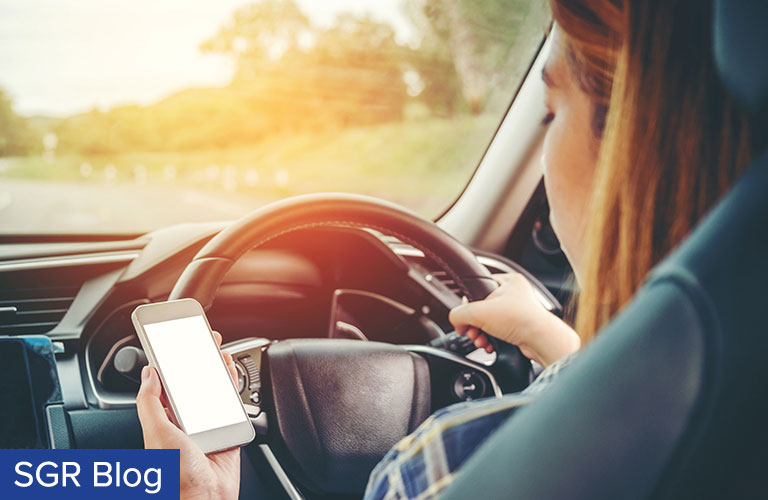
In Maynard v. Snapchat, Inc., Case No. A18A0749 (decided June 5, 2018), the Georgia Court of Appeals addressed a tragic situation involving an automobile accident caused by distracted driving and the popular application Snapchat.
The Maynards were injured in a traffic accident involving another automobile. According to an affidavit given by a passenger in that other vehicle, the driver of the other vehicle was using the Snapchat application at the time of the accident. The Snapchat application allows the user to take temporary photos and videos and share them. The application has various filters that allow the user to include images overlaying the photos and videos. One of those filters is a speedometer which shows the speed at which the user is moving. According to the affidavit, at the time of the accident, the driver was using the speedometer filter in an effort to create and post an image showing that she was driving more than 100 mph. The affiant said that the vehicle was going over 100 mph at the time of the accident.
The plaintiffs claimed that Snapchat bore liability because it knew that users could use the application in a way that would distract them from obeying traffic laws and that the speedometer filter encouraged excessive speeding.
The case in the Georgia Court of Appeals presented the narrow issue of whether the claim against Snapchat was barred by the federal Communications Decency Act. A provision in that Act provides some immunity to providers of interactive computer services. The Georgia Court of Appeals held that the particular immunity provided by the Act was not available because it applied only if the alleged liability arose from content provided by a third party. In this case, the driver never posted a photo. The plaintiffs’ claim was not based on any content provided by a third party. It was a claim based on Snapchat’s own alleged conduct in providing the speedometer filter and failing to warn users that it would encourage speeding and unsafe driving. The Court did not address the question of whether the complaint stated a claim for negligence against Snapchat, leaving that decision to the trial court in the first instance.
The Opinion is available at https://efast.gaappeals.us/download?filingId=b01956a8-8b61-4042-900b-4b1e05e8476b

